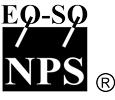The interdisciplinary orientation of EQ-SQ neuropsychoanalytical sociotherapy
(EQ-SQ NPS)
EQ-SQ NPS deals with the importance of emotional and social intelligence for the development and stability of adults, adolescents and children from the perspective of brain research, psychoanalysis and the current scientific discipline of neuropsychoanalysis. It is from the findings of these research disciplines that the most important criteria for EQ and SQ have been derived and the corresponding methods for support and therapy are developed.
The objective perspective of brain research and the more subjective, experience-dependent perspective of psychoanalysis offer a solid basis for the concept of sociotherapy, which is intended to overcome relational and developmental problems in adults, adolescents and children and is directed at individuals with psychosocial disorders and mental illnesses.
The sociotherapeutic concept that is presented here has been developed and practised since 1980 at the Institute for Applied Social Psychology Dr. phil. Alois Heinemann. Its development was initially based on the theory and practice of psychoanalysis; it was then confirmed and enriched by brain and neuropsychoanalytical research, receiving a biopsychosocial perspective.
The scientific basis of the theory and practice of EQ-SQ NPS ("EQ-SQ neuropsychoanalytical sociotherapy") is in particular the research work of: Wilfried E. Bion, John Bowlby, Sigmund Freud, Peter Fürstenau, Melanie Klein, Alfred Lorenzer, Daniel J. Siegel, Daniel Stern (psychoanalysis); Lise Eliot, Antonio R. Damasio, Gerald Hüther, Eric Kandel, Gerhard Roth (brain research); Mark Solms, Jaak Panksepp, Oliver Turnbull, Yoram Yovell, Maggie Zellner (neuropsychoanalysis); Luc Ciompi (medicine/social psychiatry); Karin and Karl Grossmann (psychology/attachment research); Reinhard Pekrun (personality psychology), Günther Schiepek (psychology/synergetics); Hermann Haken (physics/synergetics); Helge Pross (sociology); Walter Schulz (philosophy).

